|
SEO updates you need to know
Sponsor: LIVE podcast in Brighton
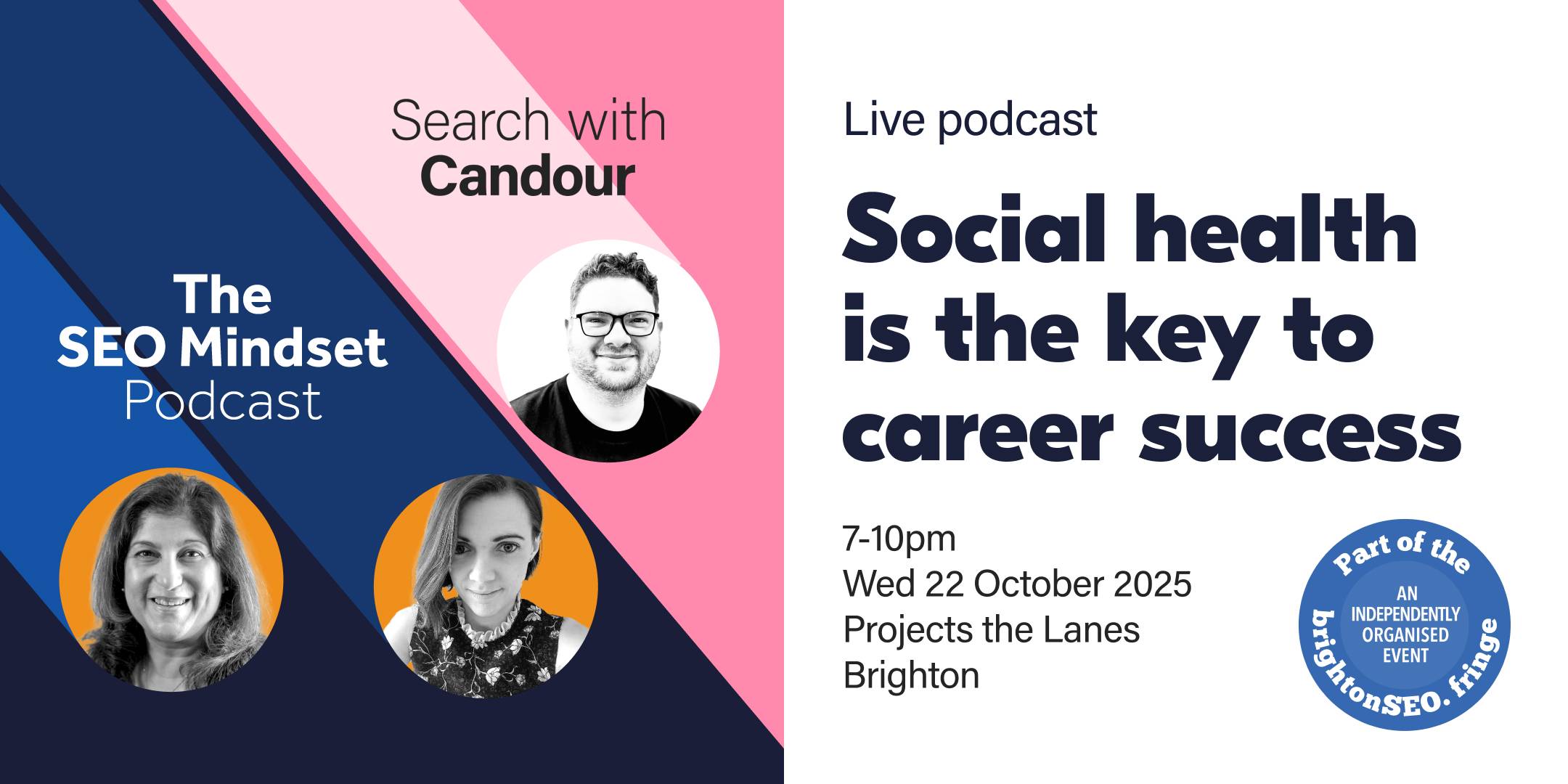
Search with Candour and the SEO Mindset podcasts are teaming up for another LIVE podcast - the night before brightonSEO in October!
🗣️ Topic: Social health is the key to career success
⌚️ Time: 19:00 - 22:00
📍 Location: Projects the Lanes, Brighton
📆 Date: Wednesday 22nd October 2025
🎟️ Tickets: Free!
Jack, Sarah & Tazmin will be sharing how to build, nurture, and strengthen authentic connections, so you walk away with tools to create a more connected, fulfilling personal and professional life.
|
Search with Candour podcast
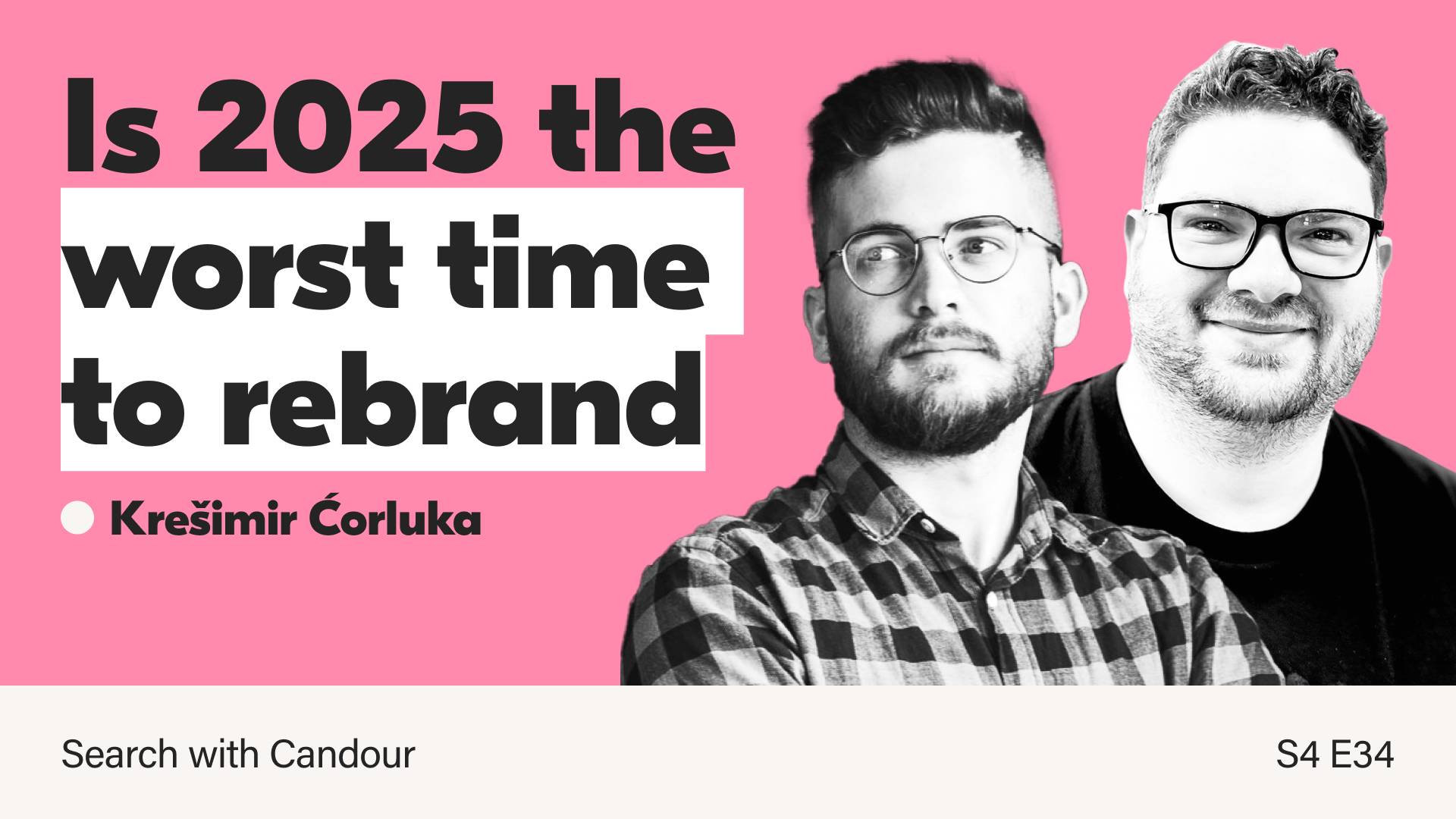
How bad branding can hurt SEO
Season 4: Episode 34
In this week's episode of Search with Candour, Jack Chambers-Ward discusses the dynamic relationship between branding and SEO with Krešimir Ćorluka, co-founder of Canonical Agency and one of the organisers of Zagreb SEO Summit.
Discover the potential pitfalls of bad branding, learn how to ensure your brand strategy supports your SEO efforts, and understand why knowing your customer base is crucial.
|
|
|
This week's solicited tips:
Crawling in sitemaps, those pages may get indexed
A neat little trick to get specific pages recrawled/indexed quickly is to put them in their own XML sitemap.
This has worked consistently for years, I assume it's got something to do with how crawl queues/parallel requests work. I've made a few solutions where I've needed to get pages into the index quickly and automatically managed a sitemap, putting only unindexed URLs in, then migrating them to the "main" sitemap once they are in.
|
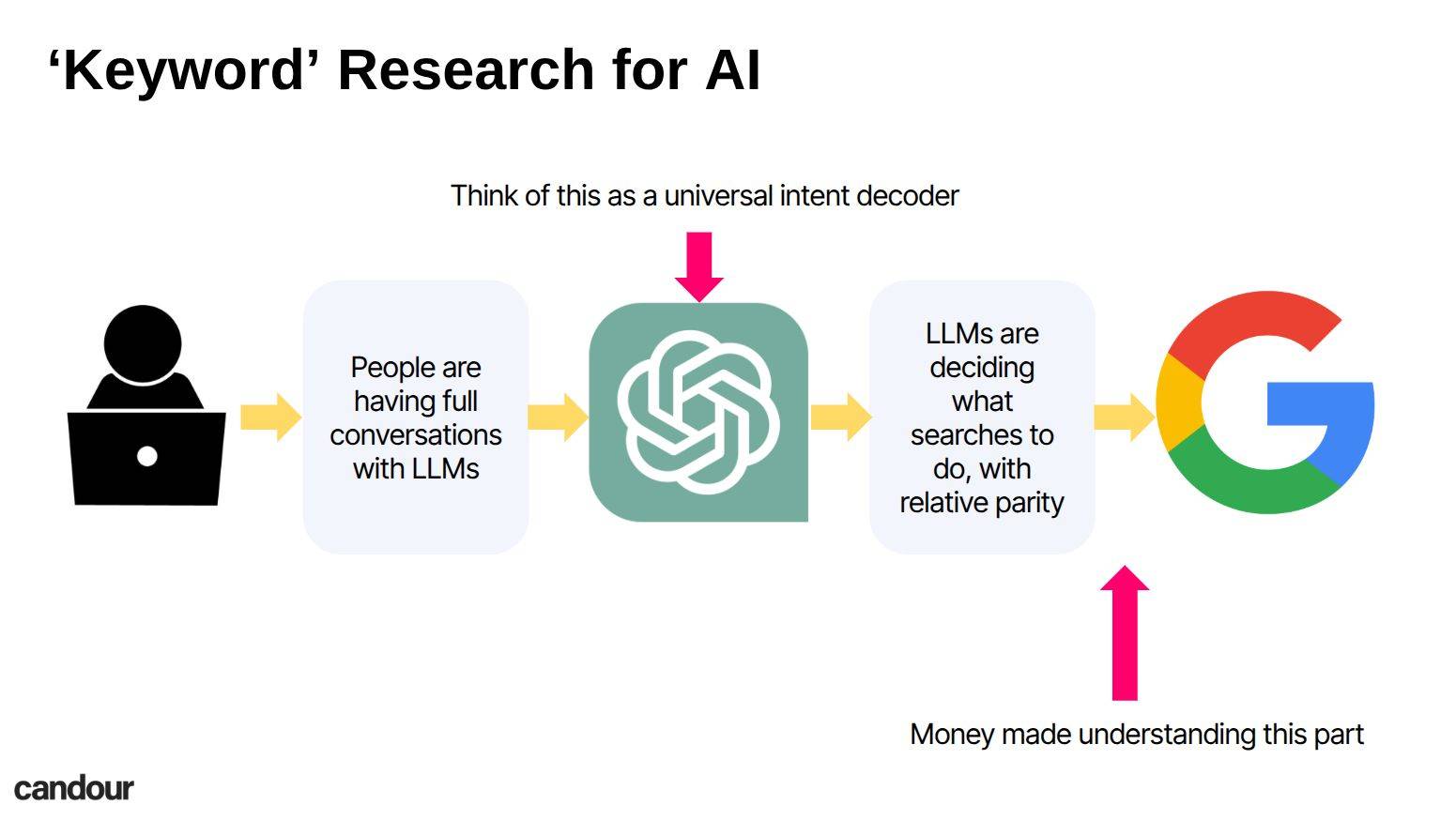
Forfeit the game, before somebody takes SEO out of the frame
'Traditional' searches will still happen in the AI-era, and if anything they're more important than ever 🔥
Previously, there was huge value in understanding what users were typing into search engines, as this dictated what we needed to be visible for. That itself, had many challenges, depending on the user's "Google-fu", would depend how they searched, and of course, what they meant by their search.
LLMs do make search more accessible, they can take the conversations that we have everyday and decode intent, and determine what 'traditional' searches need to happen in the background to get this information.
Some things I've learned so far from experimenting so far:
-
While there is little parity in what users are typing into LLMs in terms of conversations, many times it is the same intent, just worded differently.
- It is possible to account for some level of personalisation within LLMs by explaining the ICP in the prompt via the API (or a CustomGPT, if you're doing it manually).
- We already have tools and models that allow us to explore query expansions and fan outs to map "further into" the conversation.
- Tools and APIs exist to predict grounding and show which web searches are triggered.
- Ranking "your website" matters less than being present over multiple search results for those queries.
Still SEO, they just moved your cheese a bit 🧀
|
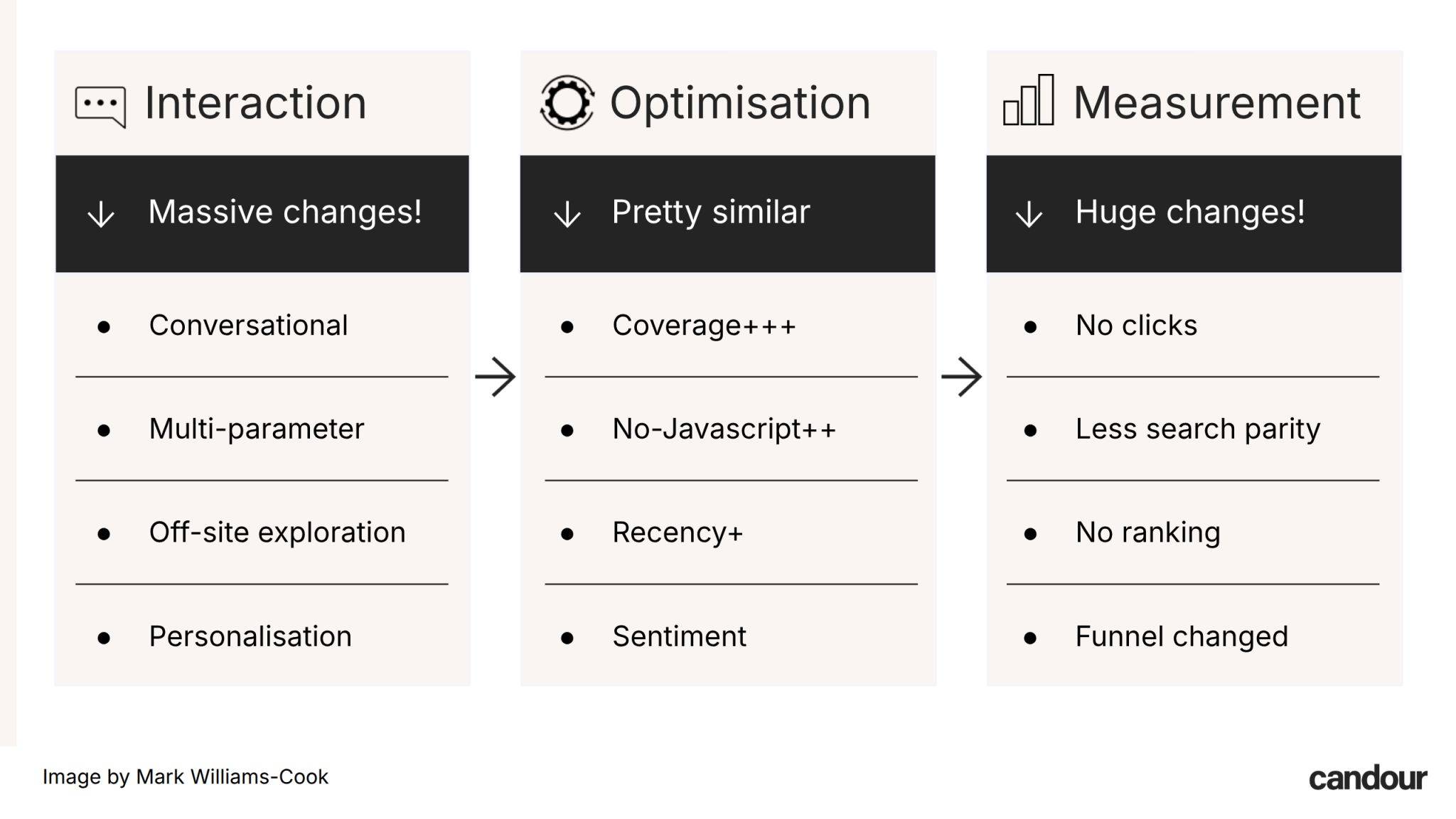
You cannot optimise anymore, doing everything you did before
Most of the things that are “different” about AI Search vs SEO, are not the actual optimisation part, but rather the bits at either end, which are worth thinking about.💡
💬 Interaction: How people use AI search is distinct, and it is worth considering what new behaviours this drives and what paradigms it establishes. Massive changes here. Specific examples:
- “Google fu” is no longer needed, you can search with human-like conversations.
- Conversations can define several search parameters which can be effectively translated into a search.
- Your product/service can be explored away from your website 4) More personalisation within conversations than ever
⚙️ Optimisation: The practical things you need to do to increase visibility. It’s actually pretty similar, like SEO over the years, the balance of what is important or how to execute it has shifted slightly. Specific examples:
- Coverage (Digital PR) is more important than ever.
- Tech basics, such as readable main content without JS is more important.
- Recency of much content is slightly more important.
- General sentiment within content is more more relevant.
📊 Measurement: How we communicate visibility, value, progress. Huge changes! Specific examples:
- Clicks, the mainstay metric of SEO is greatly diminished in importance.
- We don’t get conversation/prompt/query data linked to interactions.
- No platform-provided ranking, citation, CTR data.
- The average funnel has been warped, with many of the first steps staying within the LLM platform
To me, it’s still SEO, just with some new limbs sprouted, and more than ever all the work we are planning needs to be joined up.
If we have to call it something else, I’m with Aleyda that the most helpful term to refer to these surface considerations is “AI Search”, GEO just has too many other meanings and it’s not broad enough.
|
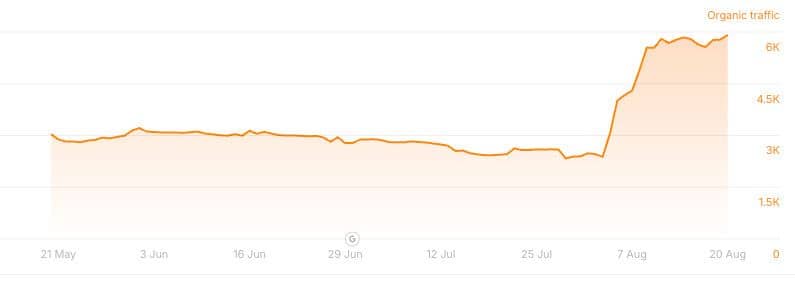
Why do clicks feel like friction today?
Clicks are friction. Both from a user perspective to find what they want and from a robot perspective of how distant a page is from other important pages. 🗺️
I’m currently looking at a website where the majority of HTML pages are ~6 clicks deep in the architecture. I am certain things would be better for users if the site navigation was “flattened” and I am very confident it would have a positive impact on their search visibility 📈
What made me even more confident of this, is that I saw super SEO Cyrus Shepard post the below chart 1 week ago with the text “Migrated 95% of the pages on this site to shorter URLs +closer to the homepage. You’ll never guess what happened next”
This is what you should mean when you’re talking about internal linking and AI, rather than just how many links you can pepper on page with rich anchor text.
|
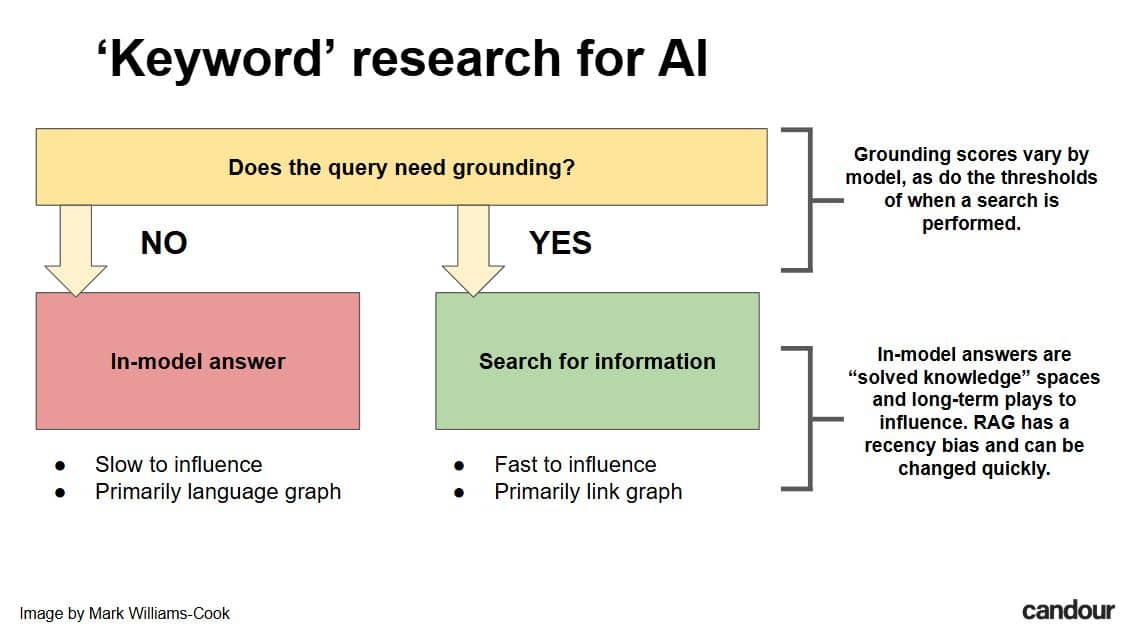
Grounding is a valuable thing, watch it fly by as the intent shifts
You're probably making strategic search decisions on faulty AI Search surface data. Some really interesting new ChatGPT analysis came out today that confirmed what we've been saying for a while:
💬 From an analysis of 87,725 exposed ChatGPT conversations by Olivier de Segonzac, only 48% were seeking factual information. The rest were a mix of requests for opinions, creative content generation and the like.
📊 This is why comparisons of Monthly Active Users (MAU), visitors, or even searches on platforms like ChatGPT vs Google are not as helpful as they seem at first and not a great base to make decisions on. While some activities are being co-opted onto LLM-platforms, many are simply things that weren't happening before and did not necessarily generate a search.
✨ John Mueller shared an interesting opinion this morning on the SEO Office Hours run by Michael Chidzey and Jo Juliana Turnbull that he believed AI Mode isn't perhaps a suitable replacement anyway for a lot of 'traditional' type of searches (also recommends you check out the new Web Guide feature in testing)
|
Refer subscribers and earn rewards!
|
|
|